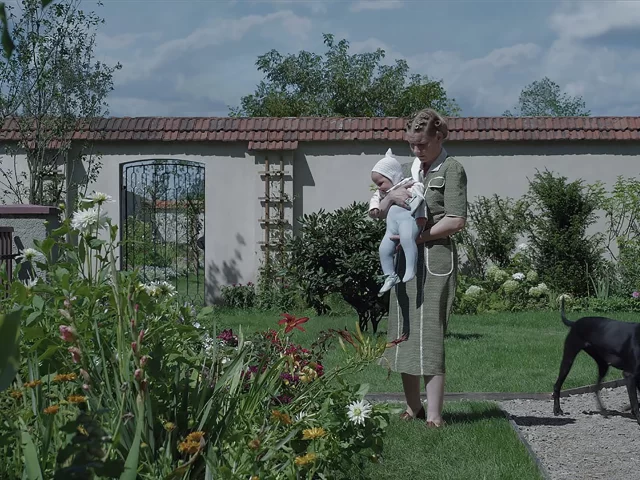
The post Josh’s Top Ten Films of 2023 appeared first on Battleship Pretension.
In a year where the prevailing entertainment news was about strikes crippling the industry, the good news is there were a lot of great movies to catch at the theaters. List-making is silly, but we all love it anyway, and it gives us a chance to talk about why we like what we like. Here’s ten movies I liked this year.
10. Poor Things
Our newest romp through Yorgos Lanthimos’ twisted brain is the most surreal one. The world of Poor Things is strange, inscrutable, and visually fascinating. The way, perhaps, a Frankenstein’s monster with a baby’s brain might see the world, if you will. Bella’s accelerated exploration of the world is just as it should be – frightening and exciting, filled with people she doesn’t understand and who don’t understand her. But in taking everything at face value, she navigates life in a way no one else could. Buttressed by dreamlike sets and great performances all around, it’s a tour-de-force of weird, but you know, the good kind.
9. Love Life
Kôji Fukada’s slow, clean Love Life focuses on how we deal with grief, and especially the self-doubt that comes with it. As bereaved mother Taeko, Fumino Kimura wonders if she could have prevented her son’s death. With this hanging over her, she starts to question all the relationships in her life, particularly those with her current husband and ex-husband. When her ex (the dead child’s father) reappears, homeless, jobless, and deaf, she’s drawn back to him like a moth to a flame, even though she’s been burned before. At the same time, her husband Jirô goes through similar struggles, trying to move past the death, but wondering if he should return to the fiancée he abandoned. It’s an intricate drama, full of relationships that are not easy to navigate, troubled imperfect people bouncing against each other. But at the end of the day, what more do we have? What more is there to love?
8. Barbie
Greta Gerwig pulls off such a spectacular balancing act in Barbie. When the first trailers were dropped, I was baffled, and I know I wasn’t the only one. How on earth is this movie going to work? What will it even be? Somehow, Barbie manages to celebrate the iconic toy, engage with its problematic image, explore feminism, criticize the patriarchy without castigating men as a whole, poke fun at Mattel just enough that they’ll allow it, appeal to middle-aged millennials and young children, and be very funny to boot. The silliness combined with commitment to the world of Barbie feels like it could have easily gone the way of 90s retro nostalgia films (think The Flintstones, The Addams Family), and indeed it is nostalgic. But in an era when 90s nostalgia is currency, Barbie recontextualizes our nostalgia, making us ponder why we love these kinds of things without shaming us for feeling that way.
7. American Fiction
American Fiction has a breezy, steady feel to it, even though it’s playing with fire. The portrayal of African Americans in the narrative arts is a hot topic, with wildly varying, deep convictions. Is the portrayal of “black hood” culture exploitative and condescending, or is there a truth in it that elevates the experiences of the lower class? This tension is what drives the film, even though the gut punch doesn’t hit us until late in act two. It doesn’t offer us easy answers – it shouldn’t, because there aren’t any. The depth of the conflicting views is encapsulated in a main character who has nothing in common with the black stereotypes he sneeringly writes about, perhaps unaware that he sees such people as just that – stereotypes. It’s a thought-provoking exploration of the representation of black Americans in art. And, simultaneously, some very funny satire of the way white Americans respond to that representation.
6. The Teacher’s Lounge
The decision to frame The Teacher’s Lounge in a 4:3 aspect ratio is very quickly validated. Young new teacher Ms. Nowak spends the entire movie trapped at the school – figuratively, but it should be noted we almost never see her anywhere else. She is consistently trying to do the right thing in a contentious environment. She protests racial profiling of students, she gives delinquents another chance, she even tries to make amends with a coworker she believes has stolen money from her. But every good deed is repaid with two bad ones. She becomes accused of some of injustices she had tried to stop, she becomes hated by those she sticks up for. Adding to the complexity are her own self-doubts – has she unjustly accused her co-worker? Could she have handled conflicts differently? Everyone around her casts doubt on her moral compass, causing her to lose a sense of herself. While the story operates effectively on its own, it’s also a salient microcosm of society as a whole. When we try to fix societal ills, motivated by good, and things only get worse, where do we go from there?
5. Oppenheimer
Oppenheimer is peak Nolan. At this point, it’s unclear whether that could be a compliment or an insult, as the filmmaker has become strangely divisive. But like him or hate him, Christopher Nolan makes cinema that’s impossible to ignore. Oppenheimer is big, long, sprawling, and is about nothing less than the end of the world as we know it. Still, it’s able to focus all that energy on one man’s story. A problematic historical figure, an enigmatic personality, and someone who once held the responsibility for saving the world, and now shoulders the responsibility for its possible destruction. Oppenheimer has the gravitas we expect from its director, a headiness, a fascination with theoretical science, and a tone of deep portent. And yet, the subtlety with which it examines the legacy of its central character helps us to understand what he thought he was building at first, and how he, like Colonel Nicholson from Bridge on the River Kwai, learns too late what he’s really done.
4. Anatomy of a Fall
On its face, Anatomy of a Fall is a procedural, a courtroom drama playing out in the expected fashion. It’s a good enough one to be interesting in that aspect, but going deeper, it gets its hands into the dirt of our relationships, the things that get swept under the rug for no one else to see. Sandra (Sandra Hüller) might not have thought of her marriage as particularly contentious, but when she’s the prime suspect in her husband’s murder, it’s all anyone can see. Moments, conversations, assumptions, are all blown up to titanic proportions, the truth of them left up to the suggestions of lawyers and the guesswork of a jury. As we the audience question her, we feel the pain of her son, Daniel, who is forced to question her the same way. Should he defend her against all accusations, or should he be the instrument of justice enacted against her? Neither path will heal their family, and as much as he wants a resolution, he (and we) will always have to wonder.
3. Past Lives
Past Lives is deeply moving in its exploration of an unusual kind of loss – not the end of a relationship, or the death of a loved one, but the loss of something that might have been. Greta Lee’s Nora has made decisions to create a good, happy life for herself, and she doesn’t regret her decisions. But in saying yes to something, we must always say no to something else. Those “no’s” come back to haunt her, most obviously in the reconnection with Hae Sung, but also in the way he represents her heritage, her people – her home. She doesn’t want to erase what she has and start over, but Hae Sung’s visit brings her face to face with what she has had to leave behind, and the sorrow that comes with that reality.
2. Sick of Myself
Sick of Myself is the satire of the social media generation that I’ve been waiting for. We all want attention, but when have we gone too far in trying to get it? As the answer to that question is pushed further and further into absurdity, Kristoffer Borgli’s film dives headlong into the extreme, presenting us with Signe, a character who literally deforms herself to be noticed. What’s most uncomfortable is that this extremity feels feasible – this isn’t a tale from a dystopian future, it’s one that wouldn’t feel impossible in today’s headlines. We don’t ever really wonder why she goes to these lengths. It’s obvious – pity is attention, shock is attention. We’re living in a world where everyone lives out a twist to P.T. Barnum’s adage; no attention is bad attention. Not only our accomplishments, but also our weaknesses have become a reason to say “look at me!” We may find ourselves wondering why she needs this so badly. Most likely, the filmmaker would turn that question around, and ask us why we need it so badly.
1. The Zone of Interest
The power of Jonathan Glazer’s The Zone of Interest lies in everything that it is not. On paper, it’s the story of a good German family, with a dedicated, hard-working head of household, whose career causes some strain in his family life. But no one watching the film would ever say that’s what it’s about. It’s about what lies barely in the margins, right on the other side of the wall, and the way that, try as they might, they can’t really keep it out. Their victims tend their garden, the bones of those they’ve killed flow through their stream. The sound – the ghastly, harrowing sounds of misery, torture and murder – float into their windows day and night. The horror of the film is not simply that these things happened, but that people could live next to it, day in and day, out and believe that what they were doing was good. To those that have complained that focusing on the perpetrators humanizes them – this is the point. We don’t need another movie to show us Nazis were inhuman monsters. We need movies that remind us that regular people can do inhuman, monstrous things.
Wanted to see but didn’t see: All of Us Strangers, Are You There God, It’s Me, Margaret, The Boy and the Heron, The Taste of Things, Master Gardener
The post Josh’s Top Ten Films of 2023 first appeared on Battleship Pretension.
The post Josh’s Top Ten Films of 2023 appeared first on Battleship Pretension.
